Checklist
You need to consider many things when creating a good QR code. To help you get on the right track, we have created a checklist! These are the 7 most important things to check when creating a QR code.
In short
- There are some steps that are essential to consider when creating a good QR code.
- These steps include testing your QR code before downloading it and considering the size and customization.
- Furthermore, considering the type of the QR code, whether it is static or dynamic, and how you will print the QR code is also important.
1. Tested?
Before saving a QR code it is wise to test it. You can do this by scanning the example on the right. Does everything work like it should? Then save! Is something not working? A spelling mistake, a lack of contrast or one of these reasons (link top 10 reasons) might have caused it. If you’re actually going to use the QR code it is wise to check it again, just to be sure nothing went wrong.
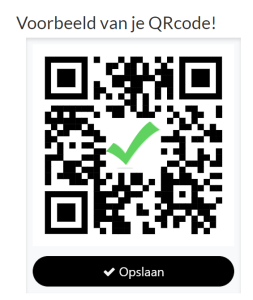
2. Sufficient customization?
So many QR codes are used, that a standard one without customization, is barely getting attention. QR codes that give you a reason to scan, or tell where they are directed towards are scanned more often. Even just the text ‘scan me’ is worth adding. Customized QR codes work better, because they are more unique. Check your customization!

3. Right size?
Measurement matters for QR codes. A QR code should be able to be scanned and should draw attention. There is no perfect size, as every QR code is different. The truth is: go with your gut, and test wat does and doesn’t work.
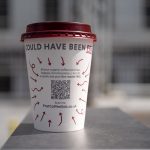
4. Insufficient contrast
If the contrast between two colors in the QR code is too little, it might become impossible to read the QR code. Customization is good, but do keep in mind that there has to be enough contast. Before downloading, scan the QR code the check!
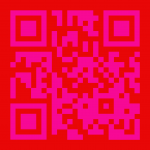
5. Static or dynamic?
Before creating a QR code, you’ll first have to decide if it is going to be static or dynamic. Do you need some info on what static and dynamic QR codes are all about? Click here (link). Here’s an oversight of which one has which advantages:
Static –Many applications: Link, vCard, Wifi etc; -Quick & easy.
Dynamic -Track the amount of scans;
-The link, and customization can be edited afterwards.
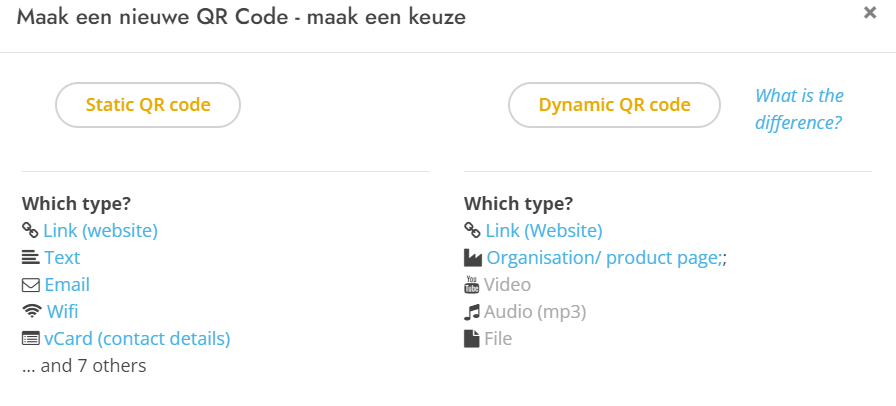
Consider the aim of your QR code campaign to make the best decision!
6. Suitable type?
There are 14 different static and 8 different dynamic QR code types . Most QR codes are ‘link’ QR codes, but still it is wise to see which type fits your situation best. Some QR code types speak for itself, and for the others you can find info on our blog (link-blog).
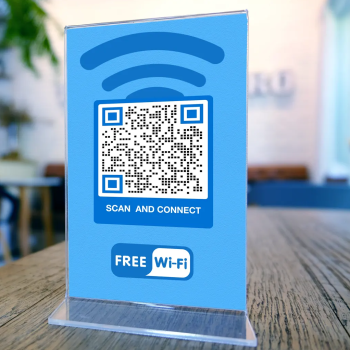
Source: wifi-installatie
7. Print your QR code?
If you’d like to print your QR code(s), you’ll have to decide whether to use a pixel or vector file format (link-tips for printing). These are the advantages of each file type:
Pixelfiles:
- Can be edited easily;
- Are allowed on almost all platforms.
Vectorfiles:
- Take in minimal storage space;
- Remain their good quality after scaling;
- Opening, editing, and saving the file won’t lead to quality loss.
Check which file format you want (we recommend PDF). As you don’t want to be faced with any surprises when printing QR codes.
Source: Drukmakers
FAQ
For dynamic QR codes (link blog statdyn) we currently offer the types link, video, audio, pdf, text, image, vCard, and social media.
Advantages of dynamic compared to static:
- You can track the number of scans easily (blog track scans), with just one click needed;
- You can edit the data after the QR code was created.
Disadvantages of dynamic compared to static:
- You need an account, and QR code data has to be saved where it was generated; so others can control your QR code;
- It takes a fraction of a second longer to load a page with dynamic QR codes;
- Our logo will briefly appear with free dynamic QR codes.
The minimum is 1×1 cm. However in practice a QR code should be larger, as the QR code should grab attention. If the QR code is scanned from a great distance, and if the QR code contains much data (many blocks) the minimum size is higher as well. Click here to read about the ideal QR code size (blog QR size).
At FreeQRCode you can optionally edit the colors, choose block patterns, change the edges, insert your own logo, add a customized frame, adapt the quality (link blog quality), choose a size, and more. With dynamic QR codes you can even enter a customized link which everyone will see when scanning your QR code. There are a lot of options to make your QR code perfect! Looking for more explanation about all our options and how to use them? Click here. (link blog customize)
Yes this is possible! You can download the QR code in PNG, SVG or PDF format. Then you can print the QR code. For tips when you’d like to print a QR code, click here. (link blog print tips)
